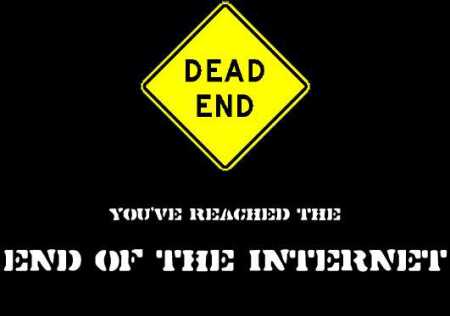End of internet as we know it? New fed rules spark debate
 San Francisco - The technology world was buzzing Tuesday after a ruling by the Federal Communications Commission (FCC) that promised tighter controls to ensure the neutrality of the internet.
San Francisco - The technology world was buzzing Tuesday after a ruling by the Federal Communications Commission (FCC) that promised tighter controls to ensure the neutrality of the internet.
The new rules will come on top of four existing guidelines meant to prevent network operators from deciding which internet traffic can move across their networks.
FCC Chairman Julius Genachowski credited those rules for creating the environment in which innovative companies like eBay and Facebook could flourish.
"It has unleashed the potential of entrepreneurs and enabled the launch and growth of small businesses across America," he said. "It is vital that we safeguard the free and open Internet."
The existing rules state that consumers are entitled to access the lawful internet content of their choice and to run applications and use services of their choice, subject to the needs of law enforcement. With the ever-growing shift of the internet to mobile phones, Genachowski pressed for those rules, and new ones, to apply to mobile networks.
Consumers are entitled to connect their choice of legal devices that do not harm the network, and also to competition among network providers, application and service providers, and content providers.
The two new principles that Genachowski proposed would prevent internet access providers from discriminating against particular internet content or applications, while allowing for reasonable network management. The second principle would ensure that internet access providers are transparent about the network management practices they implement.
While Genachowski said the rules would be a boon to consumers, the phone companies, network providers and some tech pundits argued that the rules would quickly lead to an end to flat-rate internet plans. Instead, users would start paying for the bandwidth they use.
AT&T was quick to denounce the plan as a "bait and switch," after it paid 2.5 billion dollars last year to snap up a piece of the 700- MHz spectrum.
It's no coincidence that AT&T was first out of the gate with criticism. Its network is already struggling to deal with its iPhone overload and in its complaint the company cited the "incredible bandwidth strains" facing US carriers.
The company was also widely suspected of blocking the Google Voice application from iPhones, which run exclusively on AT&T's network in the US. Among a plethora of amazing features, the free Google application gives users a number that they assign to ring their home, work and cell phones, or any number of their choosing. Google Voice also happens to bypass carrier call charges.
No surprise, then, that Google said it "could not be more pleased to see Chairman Genachowski take up this mantle." Or that Josh Silverman, chief executive of Skype, welcomed the move: "The exact expectations you have of your PC, you're going to have of your mobile phone," he said.
In other words, any content, anytime, anywhere.
Yet it wasn't just the phone companies like Verizon who warned about the serious impact the FCC plan could have on "content providers, application developers, device manufacturers and network builders."
From the Wall St Journal to Wired Magazine, pundits opined that the plan would have the opposite effect than intended.
"Let's not let a well-meaning attempt to preserve that innovation wind up doing exactly the opposite," said Wired's Dylan F Tweney, who predicted that the "days of all-you-can-eat, flat-rate internet access are probably over."
The Wall Street Journal, in an editorial, blasted the decision, saying that AT&T, Verizon and other broadband providers have spent "tens of billions on broadband pipe" since 2007, and now President Barack Obama's FCC wants to reward "Google and other Web content providers whose business model depends on free-loading?" (dpa)